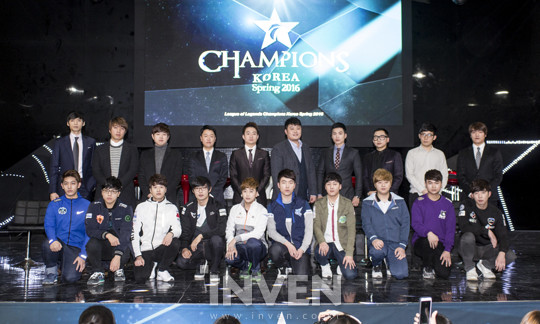
Riot announced that they will share a part of the League of Legends’s broadcasting revenue with professional organizations. Riot is among one of the first eSports game companies to do so.
On September 23rd, Riot revealed their vision for the eSports business through the post titled “LoL Esports Now and in the Future.” In the post, Riot acknowledged they have the responsibility of securing eSports’ sustainable economic future and promised revenue stream sharing with teams and players alongside other major eSports business models.
The company outlined various revenue sharing models, including media, sponsorship, merchandise, and in-game content. The announcement assured that the media and sponsorship will play a key role in eSports’ long term success.
According to Inven KR’s coverage, Riot said that they held a meeting concerning revenue sharing and decided that they will share a portion of broadcasting revenues with LCK teams. It’s not yet clear how much profit will be generated to be shared with the teams, but the company said that they plan to share specific profits as early as this year or the next year at the latest.
Previously, Riot made substantial strides toward this plan by partnering with MLBAM(MLB Advanced Media)’s BAMTech late last year. Through the partnership, BAMTech purchased LoL’s streaming rights for $300M.

In regards to Riot’s plans, people in the competitive gaming responded positively.
One pro team manager who wished to be anonymous said that he is grateful that they going the extra mile to build a profit structure for teams, because gaming organizations are hemorrhaging money these days without steady revenues. He added that not many game companies look out for eSports team’s economic viability and expressed joy for eSports’ truly becoming on par with other traditional professional sports.
Another anonymous person in a gaming organization mentioned that gaming teams financially depend on their corporate backers, while salaries for players skyrocket. He also stated that other sports share broadcasting revenues by default, but eSports couldn’t due to their unique profit structure. He showed optimism by saying that no other eSports ever shared broadcasting revenues with teams.
However, one source in the industry indicated that it’s still late to consider broadcasting revenues after over 15 years of eSports. He urged other game companies to take into account revenue sharing because all gaming organizations feel the same way. He concluded that eSports is an ever-changing field, as was the case with the original Starcraft, and that companies must look towards the long-term.
Broadcasting revenue sharing is an integral part of any professional sports, as it distributes profits from tickets and broadcasting among participating teams to further build foundation. This is one of the most common virtuous cycles in which revenue distributed among the people in the scene is re-invested to sustain long-term success and thereby higher broadcasting profit.
It seems that the Riot’s decision to share revenue will act as a catalyst to make eSports a true professional sport. If they succeed, Riot will set a milestone for future and current companies participating in eSports, and people won’t just have to dream about eSports standing shoulder-to-shoulder to other professional sports.
Sort by:
Comments :0







